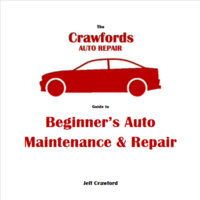Search
Books+
Searching 1,730 books
Search related to the career Fleet Maintenance Supervisor
Responsibilities of a Fleet Maintenance Supervisor:
1. Overseeing Fleet Maintenance Operations:
- Develop and implement maintenance programs and procedures for the fleet.
- Monitor and ensure compliance with maintenance schedules and service requirements.
- Coordinate and prioritize maintenance tasks to minimize downtime and maximize efficiency.
- Conduct regular inspections to identify and address maintenance needs.
2. Managing Maintenance Staff:
- Recruit, train, and supervise maintenance technicians and mechanics.
- Assign work orders and provide guidance to ensure timely completion of tasks.
- Conduct performance evaluations and provide feedback to improve team performance.
- Foster a positive work environment and promote teamwork among staff members.
3. Budgeting and Cost Control:
- Develop and manage the fleet maintenance budget.
- Monitor expenses and identify cost-saving opportunities.
- Evaluate and select vendors and suppliers to ensure cost-effective maintenance services.
- Implement strategies to optimize fleet maintenance operations within budget constraints.
4. Ensuring Compliance and Safety:
- Ensure compliance with local, state, and federal regulations related to fleet maintenance.
- Maintain accurate records of inspections, repairs, and maintenance activities.
- Implement safety protocols and procedures to minimize accidents and injuries.
- Conduct regular safety training for maintenance staff.
5. Fleet Performance Analysis:
- Analyze fleet performance data to identify trends and areas for improvement.
- Develop and implement strategies to enhance fleet efficiency and reliability.
- Monitor key performance indicators (KPIs) and take corrective actions as needed.
- Collaborate with other departments to optimize fleet utilization and productivity.
6. Equipment and Inventory Management:
- Maintain an inventory of spare parts, tools, and equipment needed for maintenance.
- Coordinate with procurement to ensure timely availability of necessary supplies.
- Implement asset management systems to track and maintain fleet equipment.
- Evaluate and recommend equipment upgrades or replacements when necessary.
7. Communication and Reporting:
- Communicate with internal stakeholders to understand their maintenance needs.
- Provide regular reports on fleet maintenance activities, costs, and performance.
- Collaborate with other departments to address maintenance-related issues.
- Respond to inquiries and resolve complaints related to fleet maintenance.
8. Continuous Improvement:
- Stay updated on industry trends, technologies, and best practices in fleet maintenance.
- Identify opportunities for process improvements and implement changes.
- Foster a culture of continuous learning and professional development within the team.
- Seek feedback from stakeholders and implement strategies to enhance customer satisfaction.
Source: Various AI tools
Searched in English.







